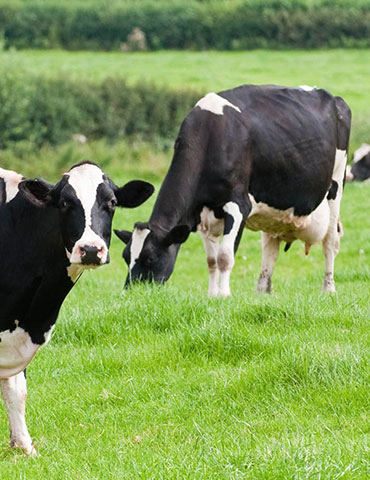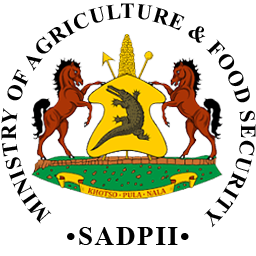
A small piggery that started in 2006 with modest ambitions has evolved into one of Lesotho’s emerging examples of mixed farming excellence. Thabang Tlhapi, the founder of Tlhapi Farm, has walked a journey of persistence, strategy, and structured growth culminating in a dairy operation that now feeds markets, creates jobs, and mentors the next generation of farmers. Today, Tlhapi Farm is not just about cows, pigs, or sheep it’s a case study in how modern farming, when matched with targeted support like the Smallholder Agriculture Development Project II (SADP II), can unlock untapped potential and transform agriculture into a viable, long-term career.
From Piggery to Purpose
Tlhapi’s journey began with pigs. For seven years, they sustained his household and taught him critical lessons in animal husbandry and daily farm operations. But even then, he knew piggery was only the foundation. In 2018, he applied for support under the original SADP I grant but the application was unsuccessful. Instead of being discouraged, Tlhapi used the feedback as a roadmap to refine his vision. By 2019, he pivoted into dairy farming, beginning with just three cows.
“Piggery was a stepping stone. It gave me the courage and discipline to take on bigger projects.”
The SADP II Turning Point
In 2021, after applying for the second time, Tlhapi secured the SADP II grant, which became the catalyst for scaling Tlhapi Farm into a dairy and mixed farming operation. Structured around milestones, the grant provided critical infrastructure and livestock support, drilling of a borehole for consistent water access, construction of a kraal and shelter structures, 8 Holstein Friesian cows, bringing the total herd to 12 and training and technical support on dairy and mixed farming. Today, the farm produces over 120 litres of milk daily, yet Tlhapi notes that Lesotho’s demand for dairy far outpaces current supply.
Integration as a Strength
While dairy remains the core focus, Tlhapi Farm has integrated pigs, sheep, poultry, and grains into its system creating a resilient ecosystem. This mixed farming strategy ensures year-round cash flow and reduces vulnerability to market or climate shocks. “The chickens and sheep are not commercial, but they support the dairy whether through income for feed or manure for crops.”
Collaboration Over Competition
Recognizing the power of numbers, Tlhapi co-founded the Determined Association, a network of like-minded farmers pooling resources, sharing logistics, and offering peer support. The association enables members to exchange manure, feed, transport, and knowledge, building collective resilience across farms. “Importing cows alone is expensive. But when we work as a team, we save on costs, reduce risk, and avoid scams”, he emphasized.
Discipline, Not Dependency
Tlhapi emphasizes that SADP II is not a free ride, but a contractual commitment. He cautions against farmers who misuse grant funds or lose focus, urging others to remain grounded in purpose and accountability. “It’s not luxury; it’s a stepping stone to the vision you outlined. SADP II is not your business manager, you are.”
Farm Management as a Profession
With the support of SADP II and his academic background in agriculture, Tlhapi has adopted a business mindset that implements bookkeeping and recordkeeping, tracks individual cow performance, schedules animal retirement based on productivity, and designs infrastructure focused on efficiency and hygiene. Even the farm’s kraal layout is optimised to reduce movement inside, enhancing sanitation and animal welfare.
Investing in the Future
Beyond profit, Tlhapi is passionate about mentorship and youth involvement. His farm employs:
- 1 permanent worker
- 4 temporary staff
- Several mentees, mostly young aspiring farmers
“Farming is not for lazy people. Even with money, you need discipline and care. Start young, build early, and you’ll leave a legacy.”
Continuous Learning
He lives by the Sesotho proverb, “Ea bohlale o ithuta ka mehla” (The wise keep on learning), attending:
Farmer exchange programs
SADP II workshops
Ministry refresher trainings



